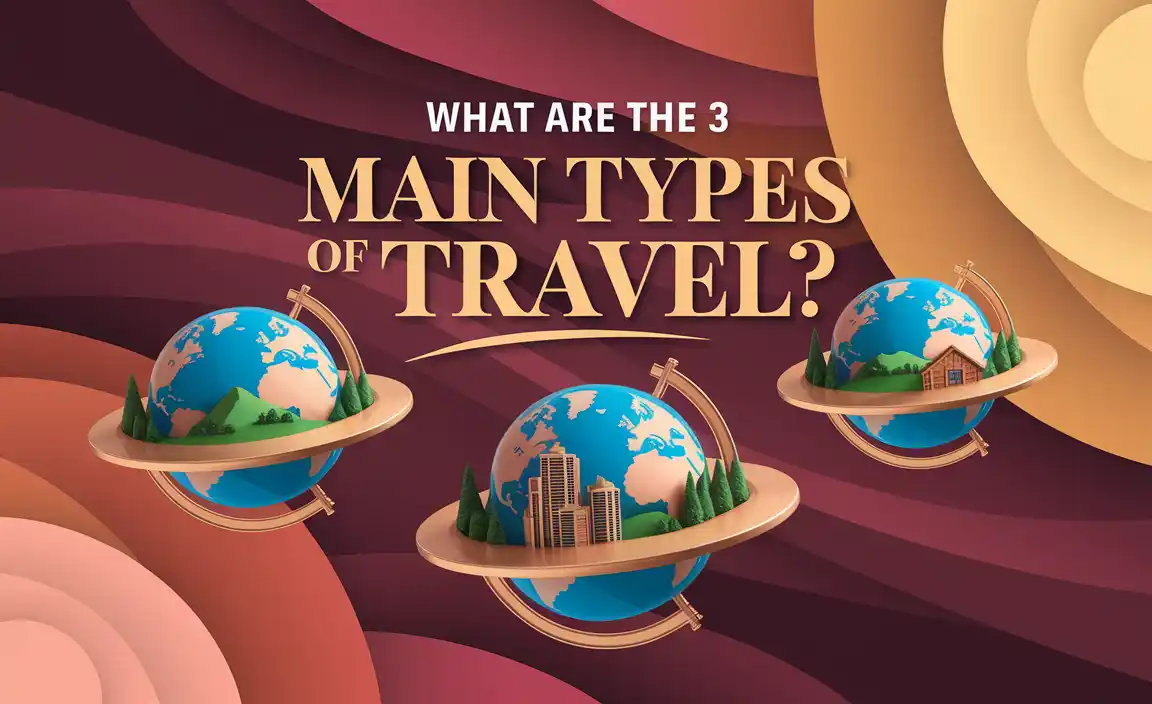Australia local etiquette and tipping are straightforward: tipping is not expected or required in most situations, but appreciated for exceptional service. Be punctual, use polite language, and respect personal space.
G’day, fellow travelers! Planning a trip Down Under? One of the things that can feel a little tricky when heading to a new country is understanding the local customs and how to show your appreciation. For many, especially when it comes to tipping, it can be a source of confusion. You might wonder if you need to carry extra cash to leave for your barista or taxi driver. Don’t worry, this guide is here to smooth out those wrinkles! We’ll break down Australia’s unique approach to etiquette and tipping, so you can relax and truly enjoy your adventure. Get ready to feel confident navigating social situations and showing gratitude in the most Aussie way possible.
Navigating Niceties: Understanding Australian Etiquette
Australians are known for their friendly, laid-back attitude, but like anywhere, a little understanding of local customs goes a long way. It’s less about strict rules and more about common courtesy and treating others with respect.
Common Greetings and Courtesy
When you meet someone for the first time, a simple “G’day” or “Hello” with a smile is perfectly fine. Handshakes are common when meeting someone professionally or for the first time in a more formal setting. For friends or in casual situations, a nod or a wave is often enough. Australians tend to be direct but polite. Avoid overly formal language unless the situation calls for it.
Punctuality Matters
While the stereotype of Australians being super relaxed might suggest otherwise, punctuality is generally valued. If you’re meeting someone for an appointment, a business meeting, or even a social gathering at someone’s home, try to be on time or a few minutes early. If you’re running late, it’s polite to let the person know. For casual get-togethers at a pub or friend’s place, a little flexibility is usually accepted, but don’t make a habit of it!
Personal Space and Conversation
Australians typically appreciate a reasonable amount of personal space. Avoid standing too close when talking to someone. Conversations are usually open and friendly. Australians tend to be quite egalitarian, meaning they value equality and dislike overt displays of arrogance or pretentiousness. Don’t be afraid to engage in casual chat; it’s a great way to connect. Topics like sports, travel, and current events are common, but it’s wise to avoid overly controversial subjects until you know the person better.
At the Dinner Table
When invited to someone’s home for a meal, it’s a nice gesture to bring a small gift, like a bottle of wine, chocolates, or flowers. Always ask if you can help clear plates or tidy up, though your hosts will likely tell you to relax. Wait to be seated, and follow the host’s lead for when to start eating. Complimenting the food is always appreciated.
For families traveling with children, managing comfort and hygiene is paramount. Whether it’s providing secure solutions for kids exploring new sights or ensuring a stress-free journey for adults who might need extra support, having reliable essentials makes all the difference. Many travelers find that products like adult diapers and diapers for children offer peace of mind, allowing everyone to focus on the travel experience rather than potential discomfort or accidents.
Respecting the Environment
Australians have a deep appreciation for their natural surroundings. Be mindful of littering, particularly at beaches and in national parks. Dispose of your rubbish correctly. Many popular tourist spots have strict rules about interacting with wildlife, so always follow signage and guidelines to protect both yourself and the animals.
The Tipping Truth: What Aussies Do
Tipping culture in Australia is significantly different from places like the United States. It’s a relief for many travelers to learn that it’s not generally expected. However, understanding the nuances can help you know when and how to show your appreciation if you feel inclined to do so.
Is Tipping Expected?
The short answer is: no, tipping is generally not expected in Australia.
Australia has a strong minimum wage and a “living wage” policy, meaning that service staff are paid a fair wage for their work. This is why tipping isn’t considered a necessity for them to supplement their income, unlike in some other countries.
When a Tip Might Be Appreciated
While not expected, a tip is always welcome if you’ve received truly exceptional service. This is more about going above and beyond rather than standard, good service.
Outstanding Restaurant Service: If your waiter was particularly attentive, knowledgeable, and made your dining experience memorable, a small tip might be appropriate.
Exceptional Tour Guide: If a tour guide went the extra mile, provided in-depth insights, or made your tour incredibly enjoyable and informative, a tip can be a nice way to show gratitude.
Valet or Porter Services: For services where someone has gone out of their way to assist you with luggage or parking, a small tip for their extra effort is sometimes given.
Long-Distance Taxi or Ride-Share: For a very long journey where the driver provided excellent service, a small tip could be considered.
How Much to Tip (If You Choose To)
If you decide to tip, Australians typically tip a small amount. It’s a gesture of appreciation, not an obligation.
Restaurants: For exceptional service, rounding up the bill or leaving an extra 5-10% is considered generous. Many people simply leave the change.
Taxis/Ride-Shares: Rounding up to the nearest dollar or two is common if you feel the service was outstanding.
Tour Guides: A small amount per person, perhaps $5-$10 AUD, can be given for exceptional tours.
Key Places and Situations Where Tipping is NOT Customary
It’s important to know where you generally won’t* be tipping. This will save you confusion and potentially awkward moments.
- Cafes and Coffee Shops: Baristas and cafe staff are not tipped. The price you see is the price you pay.
- Most Casual Restaurants: For everyday meals where service is good but not extraordinary, tipping is uncommon.
- Bars: Bartenders do not expect tips.
- Hotels: No need to tip housekeeping, room service (unless exceptional), or reception staff.
- Hairdressers/Salons: Tipping is rare unless you received an absolutely outstanding service.
- Ride-Share Drivers (for short trips): For standard short rides, tipping isn’t expected.
Australian Tipping Culture vs. Other Countries
It’s useful to compare Australia’s tipping norms to other popular destinations.
United States: Tipping is a significant part of the service industry culture, with expectations often ranging from 15-25% for good service in restaurants. This is largely due to lower base wages for service staff.
Europe: While tipping varies across European countries, service charges are sometimes included in the bill (especially in countries like France or Italy). In other places, rounding up or a small tip of 5-10% for good service is common, but less mandatory than in the US.
Asia: Many Asian countries have little to no tipping culture. In some places, tipping can even be seen as being ostentatious or implying the service wasn’t good enough on its own. However, this can vary greatly by country.
Australia stands out as a destination where service staff are paid a fair wage, making tipping a voluntary act to express appreciation for truly exceptional service.
Dining Etiquette: A Taste of Australia
Eating out is a significant part of the Australian experience, from bustling city cafes to beachfront seafood restaurants. Understanding local dining etiquette ensures a smooth and enjoyable meal.
Making Reservations
For popular restaurants, especially in major cities like Sydney and Melbourne, making a reservation is highly recommended, particularly for dinner on weekends. You can usually do this online or by calling the restaurant.
Ordering and Service
In most restaurants, you’ll order and pay at the counter when you first arrive, especially in casual eateries and cafes. In more formal restaurants, a waiter will take your order at the table. Don’t hesitate to ask for recommendations or inquire about dishes. Australians are generally quite open about dietary requirements, so if you have allergies or preferences, mention them clearly.
Table Manners
Australian table manners are generally in line with Western customs. Use cutlery to eat your food. When you’re finished, place your knife and fork together on your plate. Elbows on the table while eating are generally frowned upon. It’s also considered polite to finish your meal, but if you’re unable to, it’s not usually a major issue.
“Going Dutch”
When dining with friends or colleagues, it’s very common for people to split the bill or “go Dutch.” If you want to pay for everyone or have someone else pay, it’s best to clarify this beforehand to avoid confusion.
For families, especially those with young children or adults requiring additional support, ensuring comfort during long meals is crucial. Having access to discreet and reliable products for managing accidents can significantly reduce stress. Options like adult briefs or specialized child diapers can provide that much-needed peace of mind, allowing everyone to focus on enjoying the meal and the company rather than worrying about potential leaks or changes.
Tipping in Restaurants
As discussed, tipping is not expected. If you receive truly outstanding service, you can leave a tip, but it’s entirely voluntary. Many people will simply leave the change from their bill.
Social Graces: Everyday Interactions
Beyond dining, there are other social nuances to be aware of that will help you integrate seamlessly.
Queueing (Queuing)
Australians are generally very good at forming orderly queues. Whether you’re waiting for a bus, ordering coffee, or buying tickets, always join the back of the line. Don’t try to skip the queue, as it’s considered rude.
Public Transport Etiquette
On buses, trams, and trains, offer your seat to elderly passengers, pregnant women, or those with small children. Keep your volume down when talking on your phone or listening to music. If you need to make a call, step to the side of the carriage if possible.
Shopping Malls and Stores
When browsing in shops, be mindful of other shoppers. Don’t block aisles or aisles with your trolley or basket. If you’re trying on clothes, hang them up neatly afterward if you decide not to purchase them.
Respecting Indigenous Culture
Australia has a rich Aboriginal and Torres Strait Islander heritage. If you visit Indigenous communities or cultural sites, it’s vital to behave with respect. This includes asking permission before taking photographs of people or sacred sites, and respecting any guidelines or restrictions provided. Learning a little about the local Indigenous culture of the area you are visiting is a wonderful way to enrich your travel experience. The Australian government’s Department of Infrastructure, Transport, Regional Development, Communications and the Arts provides resources on Indigenous arts and culture.
Frequently Asked Questions (FAQ)
Are Australians generally friendly?
Yes, Australians are widely known for being friendly, approachable, and laid-back. “No worries” is a common phrase, reflecting a generally relaxed attitude.
Do I need to tip taxi drivers in Australia?
Tipping taxi drivers is not customary or expected in Australia. If you received exceptional service on a very long journey, you could round up the fare or leave a small tip as a gesture of appreciation, but it’s not required.
What should I do if I’m invited to an Australian’s home?
If invited to someone’s home for a meal or gathering, it’s polite to bring a small gift like a bottle of wine, chocolates, or flowers. Offer to help with simple tasks like clearing plates, but don’t insist if your hosts tell you to relax.
Is it rude to be late for an appointment in Australia?
Yes, punctuality is generally valued. Being late for appointments, business meetings, or even social gatherings without informing the other party is considered impolite.
Do I need to tip in cafes and coffee shops?
No, tipping in cafes and coffee shops is not a practice in Australia. The prices displayed are what you will pay.
How much should I tip for a good meal in a restaurant?
Tipping is not expected in Australian restaurants. If you received truly exceptional service and wish to show your appreciation, a tip of 5-10% or rounding up the bill is considered generous, but it is entirely voluntary.
Are there any specific gestures or phrases I should know?
“G’day” is a common informal greeting. “Ta” means thank you. “No worries” is a ubiquitous phrase meaning “you’re welcome,” “it’s okay,” or “no problem.” Australians generally prefer casual language.
Conclusion
Your journey to Australia promises to be an incredible experience, filled with stunning landscapes, vibrant cities, and unique wildlife. By understanding Australia’s local etiquette and tipping culture, you can navigate your interactions with confidence and ease. Remember that Australians value genuine courtesy, punctuality, and respect for their environment and people. Tipping is not a significant part of their culture, as service staff are fairly compensated, but a small thank you for truly exceptional service is always appreciated.
From respectful greetings and timely arrivals to polite dining and thoughtful gestures, these simple guidelines will help you connect authentically with locals and make your travels smoother. So pack your bags, embrace the friendly Aussie spirit, and get ready for an unforgettable adventure Down Under. Safe travels!



